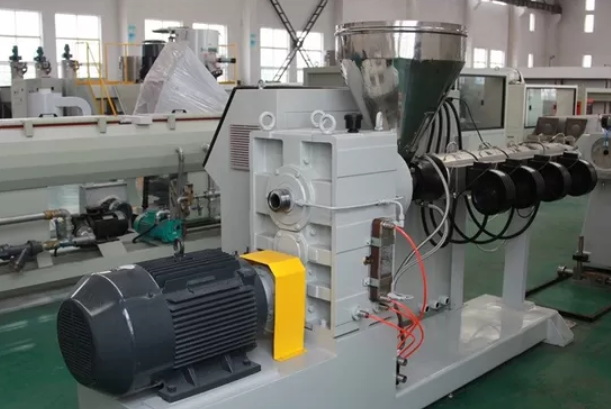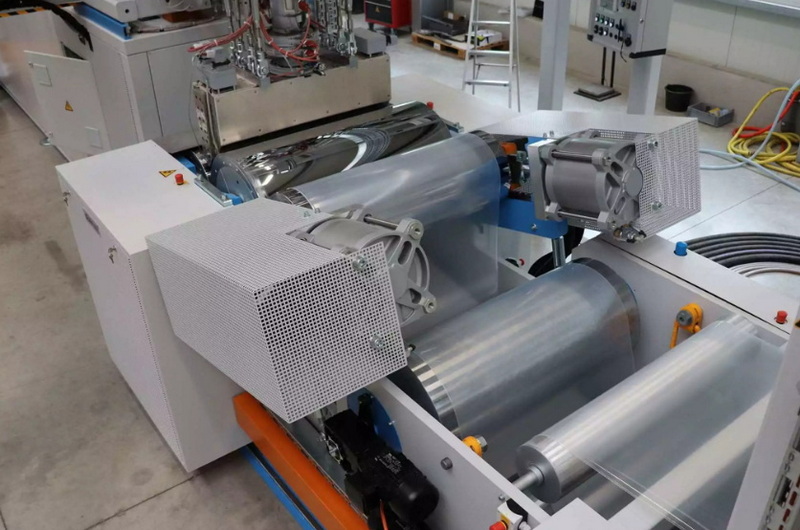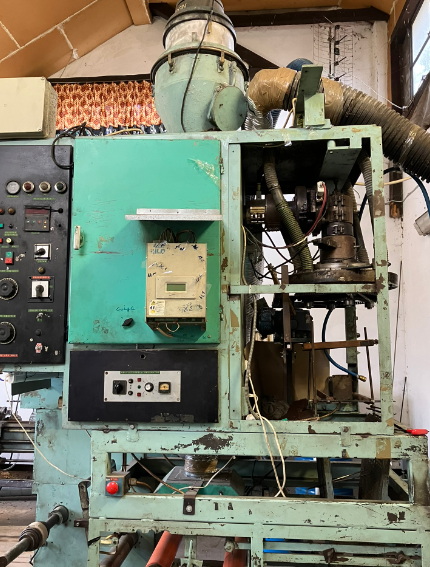Content Menu
● Introduction to Plastic Extrusion Machinery
>> Key Components of Plastic Extrusion Machinery
● Factors to Consider When Choosing a Plastic Extrusion Machinery Manufacturer
>> 1. Expertise and Experience
>> 2. Customization Capabilities
>> 3. Quality and Reliability of Machinery
>> 4. After-Sales Support and Service
>> 5. Customer Experience and Values
● Evaluating Plastic Extrusion Machinery Manufacturers
>> Research and Shortlisting
>> Site Visits and Audits
>> Request for Quotations (RFQs)
>> Trial Orders
>> Feedback and Reviews
● Innovation and Sustainability
● Global Footprint and Supply Chain
● Cost Efficiency and Return on Investment
● Training and Operator Skills
● Safety Features and Compliance
● Choosing the Right Extrusion Machine Type
● Market Trends and Future Developments
● Collaboration and Partnerships
● Conclusion
● Frequently Asked Questions
>> 1. What are the key factors to consider when selecting a plastic extrusion machinery manufacturer?
>> 2. How does customization impact the choice of a plastic extrusion machinery manufacturer?
>> 3. What role does after-sales support play in the selection of a manufacturer?
>> 4. How important is the customer experience when evaluating plastic extrusion machinery manufacturers?
>> 5. What steps should be taken to evaluate potential plastic extrusion machinery manufacturers?
Choosing the right plastic extrusion machinery manufacturer is crucial for businesses involved in the production of plastic products. This decision can significantly impact the efficiency, quality, and profitability of operations. In this article, we will explore the key factors to consider when selecting a plastic extrusion machinery manufacturer and provide insights into how to make an informed choice.

Introduction to Plastic Extrusion Machinery
Plastic extrusion is a continuous process that transforms thermoplastic feedstock into a molten viscous fluid, which is then shaped and cooled into various forms such as tubes, pipes, profiles, sheets, and films. The machinery involved in this process includes extruders, dies, cooling tanks, haul-off systems, and cutting tools.
Key Components of Plastic Extrusion Machinery
1. Extruders: These are the heart of the extrusion process, responsible for melting and forming the plastic.
2. Dies: Determine the shape of the final product.
3. Cooling Tanks: Used to cool and solidify the extruded plastic.
4. Haul-off Systems: Pull the extruded product away from the die at a uniform speed.
5. Cutting Tools: Cut the product to the required length.
Factors to Consider When Choosing a Plastic Extrusion Machinery Manufacturer
1. Expertise and Experience
A manufacturer with extensive experience and expertise in the industry is more likely to provide valuable insights and solutions tailored to specific applications. They are also more likely to have invested in research and development, offering access to cutting-edge technology that enhances productivity and efficiency.
2. Customization Capabilities
Each industry and application has unique requirements, making customization a crucial factor. A reliable manufacturer should be able to tailor their machinery and equipment to suit specific production needs, optimizing the process and delivering superior end products.
3. Quality and Reliability of Machinery
The quality and reliability of the machinery are paramount in ensuring smooth production lines and consistent product output. Selecting a manufacturer known for producing high-quality, reliable machinery reduces the risk of downtime, maintenance issues, and production delays.
4. After-Sales Support and Service
After-sales support and service play a significant role in the overall customer experience. A reputable manufacturer offers comprehensive support, including installation, training, maintenance, and spare parts availability. Responsive and dependable after-sales service ensures minimal disruptions to production and long-term satisfaction.
5. Customer Experience and Values
A good customer experience includes quick communication, competitive pricing, timely order confirmations, and shipments arriving on schedule. It is also important to select a manufacturer who operates with strong values and ethics, ensuring fairness and integrity in all transactions.
Evaluating Plastic Extrusion Machinery Manufacturers
Research and Shortlisting
Research potential manufacturers based on their reputation, expertise, and customer reviews. Shortlist manufacturers that align with your production goals and industry-specific requirements.
Site Visits and Audits
Conduct site visits or audits to assess the manufacturer's facilities, equipment, and quality control processes. This hands-on approach provides valuable insights into the manufacturer's capabilities and commitment to quality.
Request for Quotations (RFQs)
Send RFQs to shortlisted manufacturers to compare pricing, delivery times, and customization options. This step helps in evaluating the cost-effectiveness and flexibility of each manufacturer.
Trial Orders
Place trial orders to test the manufacturer's product quality, delivery reliability, and after-sales support. Trial orders provide firsthand experience of how the manufacturer performs under real-world conditions.
Feedback and Reviews
Check for feedback and reviews from existing customers to gauge the manufacturer's performance and customer satisfaction. Positive reviews and testimonials can be strong indicators of a manufacturer's reliability and quality.
Innovation and Sustainability
Leading plastic extrusion machinery manufacturers invest in R&D for new products that improve machine performance, product quality, and energy consumption. They also focus on sustainability by developing more energy-efficient machines and utilizing recycled materials. This commitment to innovation and sustainability not only enhances operational efficiency but also supports environmentally friendly practices.

Global Footprint and Supply Chain
A strong global presence combined with a reliable supply chain enables manufacturers to support their products worldwide, including quick access to parts and services. This is crucial for maintaining efficient operations across different regions and ensuring that customers receive timely support regardless of their location.
Cost Efficiency and Return on Investment
While the initial purchase price is important, focus on the overall return on investment (ROI). Evaluate the machine's performance, durability, maintenance requirements, and potential for future upgrades to determine its long-term value for your business. A cost-efficient machine may require a higher upfront cost but offers better performance and longevity.
Training and Operator Skills
Ensure that your operators receive proper training on the operation and maintenance of the chosen plastic extrusion machine. Adequate training enhances productivity, minimizes errors, and extends the machine's lifespan. Manufacturers often provide training programs as part of their after-sales support, which can be invaluable in optimizing machine performance.
Safety Features and Compliance
Consider the safety features integrated into the machine design. Look for certifications and compliance with industry standards to ensure the machine meets safety requirements and protects your operators and facility. Safety compliance is not only a legal requirement but also essential for maintaining a safe working environment.
Choosing the Right Extrusion Machine Type
Different plastic extrusion processes require specific machine types. Consider whether you need a single screw, twin screw, or multi-screw extruder based on the materials and products you will be working with. Each machine type has its advantages and limitations, so choose accordingly:
- Single Screw Extruders: Suitable for most thermoplastic materials and applications, offering simplicity and cost-effectiveness.
- Twin Screw Extruders: Ideal for complex formulations and high-performance materials, providing better mixing and processing capabilities.
- Multi-Screw Extruders: Used for specialized applications requiring precise control over multiple components.
Market Trends and Future Developments
The plastic extrusion industry is evolving rapidly, driven by technological advancements and environmental concerns. Manufacturers are focusing on developing machines that are more energy-efficient, capable of processing recycled materials, and producing products with reduced environmental impact. Staying informed about these trends can help businesses make strategic decisions that align with future market demands.
Collaboration and Partnerships
Building a strong partnership with a plastic extrusion machinery manufacturer can lead to collaborative innovation and mutual growth. Manufacturers often work closely with customers to develop customized solutions that meet specific needs, fostering long-term relationships and driving business success.
Conclusion
Choosing the right plastic extrusion machinery manufacturer is a strategic decision that can significantly impact your business's efficiency and profitability. By evaluating factors such as expertise, customization capabilities, quality, after-sales support, and customer experience, you can partner with a manufacturer that aligns with your production goals and industry-specific requirements. Ensuring that your chosen manufacturer is innovative, sustainable, and committed to customer satisfaction will help drive long-term success in the competitive plastic extrusion market.

Frequently Asked Questions
1. What are the key factors to consider when selecting a plastic extrusion machinery manufacturer?
When selecting a plastic extrusion machinery manufacturer, key factors include expertise and experience, customization capabilities, quality and reliability of machinery, after-sales support, and customer experience.
2. How does customization impact the choice of a plastic extrusion machinery manufacturer?
Customization is crucial as it allows manufacturers to tailor machinery to specific production needs, optimizing processes and delivering superior end products. This capability ensures that the machinery meets the unique requirements of each industry or application.
3. What role does after-sales support play in the selection of a manufacturer?
After-sales support is vital as it ensures minimal disruptions to production. A reputable manufacturer provides comprehensive support, including installation, training, maintenance, and spare parts availability, leading to long-term customer satisfaction.
4. How important is the customer experience when evaluating plastic extrusion machinery manufacturers?
A good customer experience is essential as it includes quick communication, competitive pricing, timely order confirmations, and shipments arriving on schedule. It also involves selecting a manufacturer with strong values and ethics, ensuring fairness and integrity in transactions.
5. What steps should be taken to evaluate potential plastic extrusion machinery manufacturers?
To evaluate potential manufacturers, conduct research and shortlist candidates, visit sites or conduct audits, send RFQs, place trial orders, and review customer feedback to assess performance and satisfaction.






















